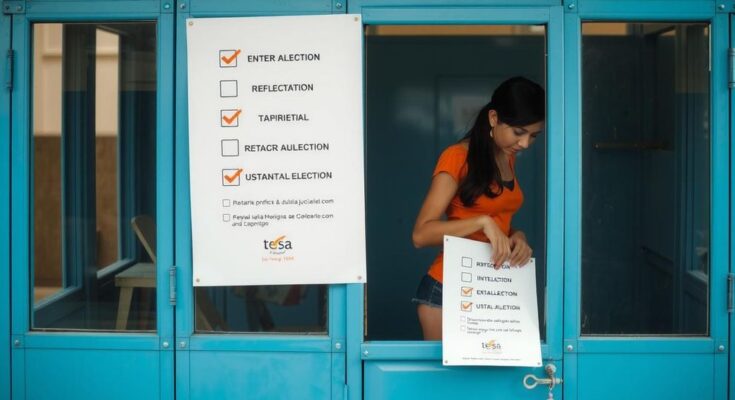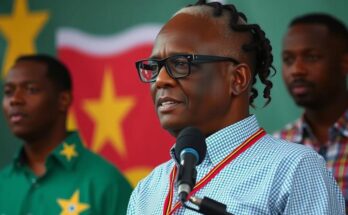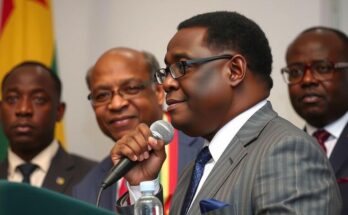Bolivia is set to hold its third judicial election amid public skepticism about the system’s validity. With unofficial campaigning tactics surfacing, many voters remain uninformed about the candidates. Critics argue the elections have converted the judiciary into political tools. The electoral tribunal has acknowledged the controversies surrounding the elections, which have faced delays due to internal conflicts. Limited seats available for election have raised further concerns about judicial independence.
In the lead-up to a contentious popular vote for Bolivia’s top judges, subtle campaigning is evident despite official prohibitions. Some candidates adorned packaging of corn snacks with their images, while others embedded slogans within official voting materials. Anticipating that many voters are unfamiliar with the extensive list of candidates, such tactics highlight the unique nature of Bolivia’s judicial elections, the only ones of their kind globally.
Former President Evo Morales initiated this system in 2009, aiming to eliminate corruption and enhance democracy. However, many Bolivians express disillusionment, perceiving the elections as politicizing the judiciary rather than promoting impartiality. Recent surveys indicate widespread uncertainty among voters, with some even resorting to flipping coins to determine their choices.
Critics of this electoral method highlight its potential to entrench ruling party dominance and erode checks and balances. The vice president of Bolivia’s electoral tribunal acknowledged the process has turned contentious, moving away from its intended simplicity. This year, the election was postponed, embroiling it in controversy as President Luis Arce clashed with Morales over control of the electoral court, ultimately exacerbating the political landscape.
As only four out of nine judges on the revered Constitutional Court are on the ballot, the idea of a marginalized system persists. Historical data from previous elections show a trend of low voter turnout and disenchantment, particularly when promises of judicial independence have not materialized. Notwithstanding such setbacks, the electoral process remains a pivotal element of Bolivia’s dynamic democracy, particularly as other nations like Mexico contemplate similar reforms.
Overall, the Bolivian judicial election illustrates the struggles of a system grappling with legitimacy and political influence, underscoring the complexities inherent in the interplay between democracy and judicial integrity.
Bolivia’s engagement in judicial elections has sparked significant debate internationally, especially given that it is the only nation where such elections are a standard practice. The recent push for a judicial overhaul by Mexican President Andres Manuel Lopez Obrador, mirroring Bolivia’s past reforms under Morales, indicates a regional shift toward politicizing the judiciary. Concerns about the impact of these reforms on democracy and the judiciary’s independence are prevalent across Latin America, with nations such as El Salvador and Honduras facing similar challenges. This backdrop provides essential context to understand the divisions within Bolivia as the nation approaches yet another election for its judicial posts.
To summarize, Bolivia’s current judicial election reveals the complexities of electoral democracy facing a judiciary increasingly viewed as politicized. Despite efforts to enhance public participation, the system’s transition from meritocratic nominations to elections has generated significant skepticism among voters. The postponed voting, limited positions available for election, and historical patterns of low engagement underline the challenges of ensuring a transparent and effective judiciary that truly serves the interests of the public, highlighting the pivotal role this process plays in shaping Bolivia’s democratic future.
Original Source: www.voanews.com



